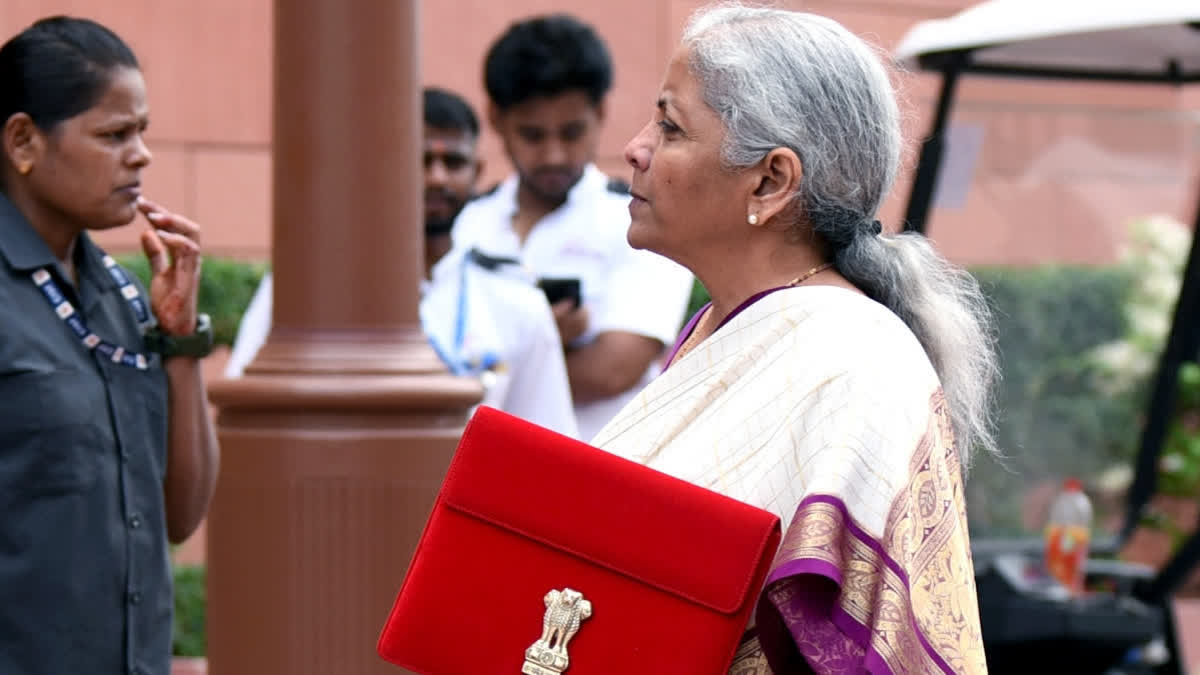By Gautam Debroy
New Delhi: With hardly four days left for the Union Budget 2025-26, experts from India’s health domain hope that the government focuses more on investments in digital health, telemedicine, electronic health records (EHR), and AI-powered solutions to enhance accessibility and efficiency.
“I hope that the government will increase the overall allocation for health to achieve universal health coverage and improve public health outcomes. Investments in digital health are crucial, with a focus on telemedicine, electronic health records (EHR), and AI-powered solutions to enhance accessibility and efficiency. These advancements can help bridge the gap in healthcare delivery, especially in underserved and rural areas,” Dr Tamorish Kole, renowned health expert and Chair of the Clinical Practice Committee at the International Federation for Emergency Medicine told ETV Bharat.
He said that addressing the workforce shortage should be prioritized through increased funding for training and upskilling healthcare professionals, including doctors, nurses, and allied health workers.
“Allocations in the budget should also be aimed at strengthening emergency medical services, trauma care centres, and disaster preparedness are equally important to bolster the country's capacity to manage critical health situations and crises effectively,” he said. Allocating additional funds for research and development (R&D) in healthcare is essential to drive innovation, enhance health outcomes, and tackle emerging challenges, Dr Kole added.
He said that investment should be made in the crucial research and development component of the healthcare industry.
“Greater investment in R&D can enable the creation of new medical technologies, and treatments critical for addressing infectious diseases, non-communicable diseases, and public health emergencies. Furthermore, it can position India as a global leader in medical research, fostering public-private partnerships and advancing the biotechnology and pharmaceutical industries,” he said.
Potential schemes could focus on expanding digital health initiatives, such as telemedicine platforms and health tech integration, to improve accessibility in rural and remote areas.
“Schemes addressing workforce shortages through training and upskilling of healthcare professionals, especially in critical areas like emergency and trauma care,” said Dr Kole. Echoing the same view, director general of the Association of Healthcare Providers-AHPI (India), Dr Giridhar Gyani said that the budget should focus on wellness as it has a direct link with productivity and therefore economic growth of the nation.
“First is promotive and preventive health. We need to be aggressive in improving sanitation, safe drinking water and nutrition,” said Dr Gyani. Clean India drives which were so well initiated by Prime Minister Narendra Modi, need to be re-launched and formalized, he said.
“Second is to provide access to quality tertiary care in Tier-III cities. This will be possible if we incentivise the private sector to open 100-bed tertiary care hospitals in Tier-III towns, without which we will not realize universal health coverage in our country. Budget must provide necessary support towards these incentives,” said Dr Gyani.
He also said that health and medical technology needs a research and development push and necessary support can come through financial support for start-ups as well as inviting overseas companies to set up plants for manufacturing high-end diagnostic equipment.
“Ayushman Bharat and National Digital Health Mission are two wonderful schemes but suffer from inadequate budgetary support. We must raise expenditure on health to at least to 2.5 percent of GDP if not 3 percent,” said Dr Gyani.
Read More



